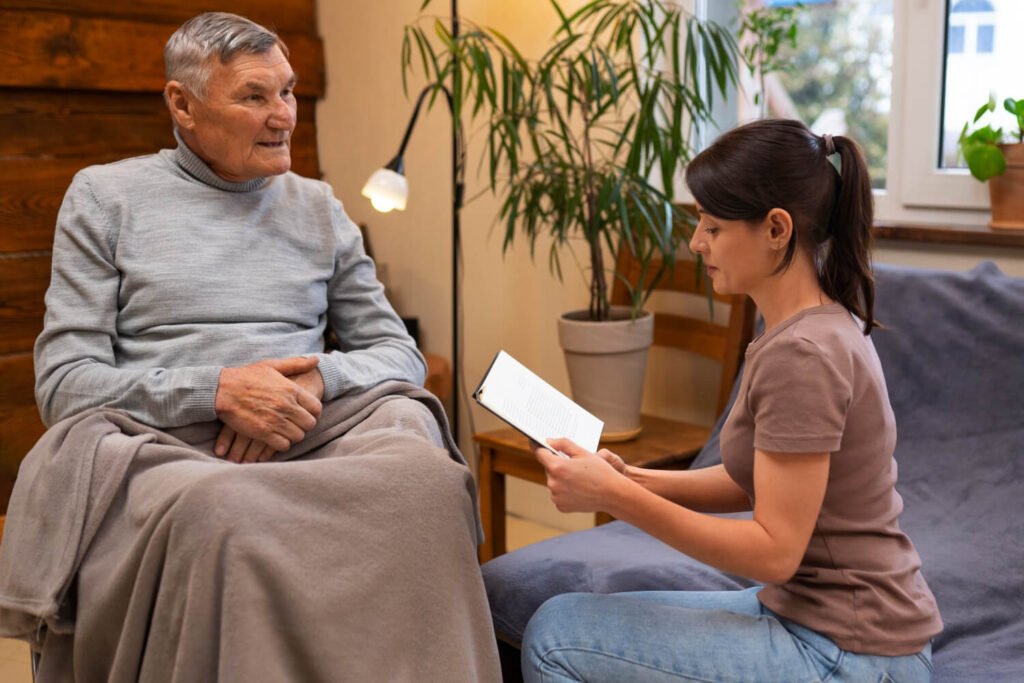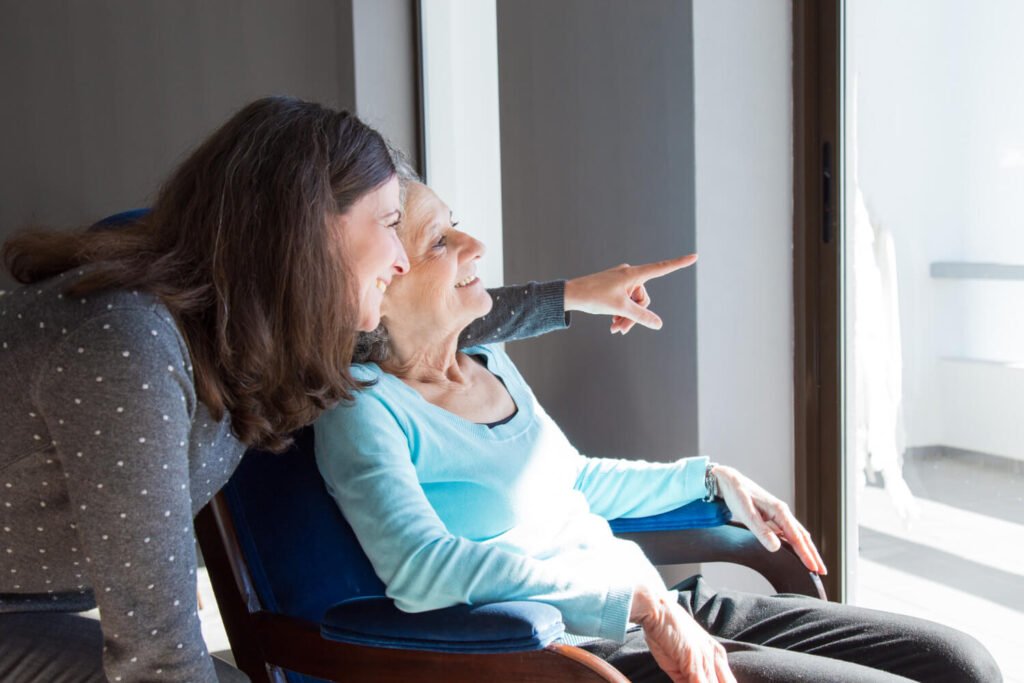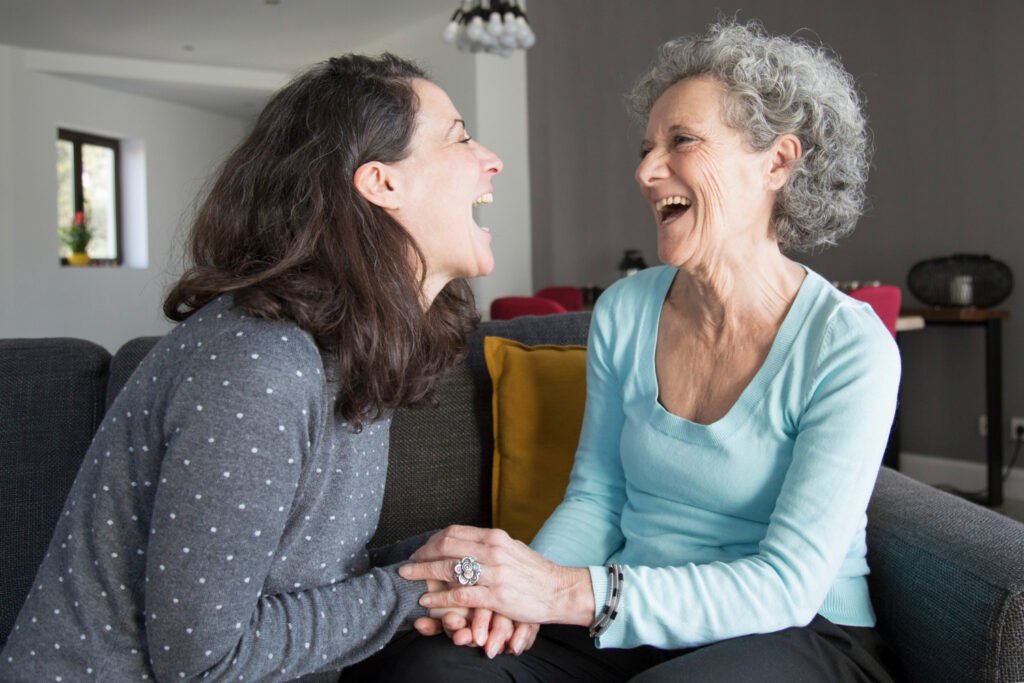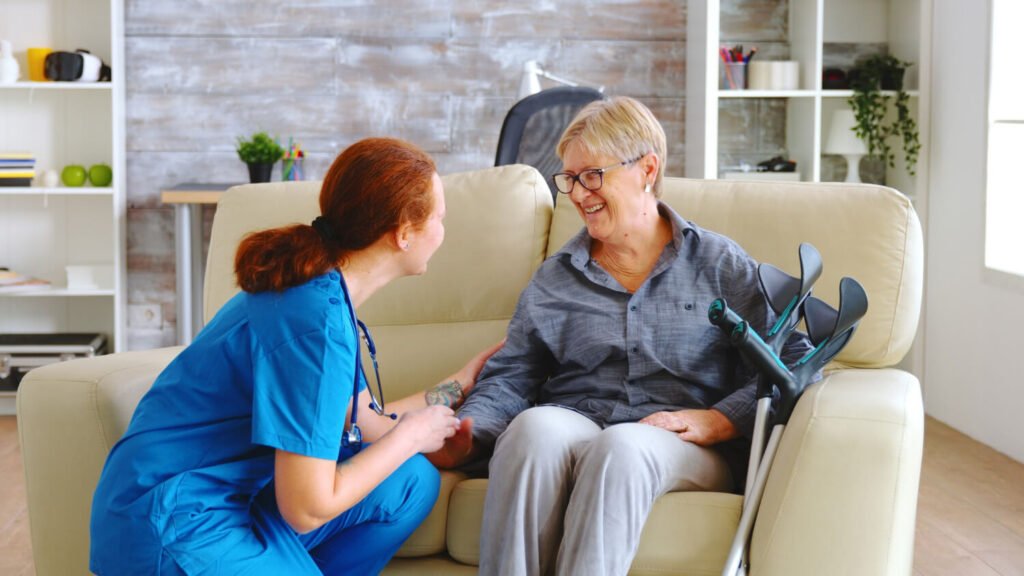Getting Unstuck from Caregiver Loneliness

In your caregiving journey, you might spend most of your day focused on someone else’s needs. You may have less time to see friends, attend your place of worship or even just talk on the phone. Over time, the quiet moments can start to feel heavy.
If you’re feeling this way, you’re not alone. It’s good to know that you don’t have to stay stuck in that loneliness.
In this post, I’ll share five ways to ease caregiver loneliness and help you feel more connected, supported and hopeful. And heads-up: I’ve also included references to a few related Biblical verses I’ve found especially helpful in easing loneliness.
1. Acknowledge your feelings without judgment.
The first step in healing from loneliness is to name it.
Many caregivers feel isolated but don’t talk about it. Some feel guilty for feeling sad or lonely because they believe they should be stronger.
Other people may think that asking for help is a sign of weakness. I’m reminded of a thoughtless comment someone made to me after my wife of 26 years died suddenly. He said I should “suck it up and keep on going.”
Asking for help is a sign of courage, modesty and honesty. — Micah 6:8
Take a moment and ask yourself:
- Do I feel emotionally alone, even when I’m physically with someone?
- Have I stopped reaching out to others because I feel too drained?
- Do I miss having regular conversations with adults?
If you answered “yes” to any of these, you’re likely dealing with caregiver loneliness.
Try writing about your feelings in a journal, praying about them, or talking with a trusted friend or counselor. Just naming the feeling is a powerful step toward healing.

It’s important to avoid self-isolation too. An ancient proverb says, “Whoever isolates himself pursues his own selfish desires; He rejects all practical wisdom.” — Proverbs 18:1
Faith Connection: God never meant for us to carry burdens alone. Even Jesus had help carrying His torture stake.
2. Join a caregiver support group.
One of the most helpful ways to combat caregiver loneliness is by connecting with others who understand what you’re going through. You can do this online or in-person.
Support groups can give you:
- A safe space to vent without judgment
- Practical advice from people who can relate to you
- New friendships that lift your spirits — Proverbs 17:17
There are many types of groups available:
- Local support groups at places of worship, community centers or hospitals
- Online forums like Reddit’s r/CaregiverSupport
- Video meetings through platforms like Zoom or Facebook Groups
Even if you only attend once a month, just knowing there are others who “get it” can bring you some comfort.
Pro Tip: Try searching for “caregiver support group near me” or visit sites like Caregiver.org and With Grayce.
3. Stay connected to friends and family.
When life gets overwhelming, it’s easy to pull away from others. But small, consistent connections can ease loneliness.

Here are a few simple ways to stay in touch:
- Schedule a 10-minute check-in call with a friend each week.
- Text a photo or message to someone once a day.
- Invite a neighbor over for a short visit and coffee.
You don’t need big social events to feel less alone. You just need regular, real connection. Of course, when using social media, it’s smart to be careful about sharing personal info with online “friends” you don’t actually know.
And if you don’t like to “burden” others, remember this: people who care about you want to know how you’re doing. Let them in.
Be yourself: You don’t have to put on a brave face. You’re worthy of love and care just as you are.
4. Make time for restorative activities.
Loneliness can grow when all your energy goes out, and nothing comes back in. That’s why it’s important to do things that can help restore your spirit.

Here are some ideas to try:
- Creative time: Drawing, knitting, journaling, baking — really anything that lets you express yourself
- Quiet time with God: Prayer, Bible reading, meditation, or listening to calming music
- Movement: A walk outside, gentle stretching or dancing in the kitchen
- Entertainment: Watching a favorite show, listening to a podcast or reading a light-hearted book
- Self-care: A warm bath or energizing massage to help revive your spirit
It’s okay to take breaks. It’s okay to enjoy something just for you. Even a few minutes a day can make a difference.
Read more about creating a self-care plan.
Quick Win: Keep a “joy list” on your fridge with small things that make you smile. Pick one when you’re feeling drained.
5. Talk to a professional if you’re struggling emotionally.
Caregiver loneliness can run deep. It can lead to depression, anxiety or feelings of hopelessness. When that happens, it’s important to seek help.
A mental health professional can help you:
- Understand what you’re feeling and why.
- Develop healthy coping strategies.
- Feel more emotionally stable and supported.
Many caregivers have benefited from therapy. You don’t have to wait until things feel unbearable to ask for help.
Therapists understand the unique stress that comes with caregiving. You deserve that kind of support.
Pro Tip: Look for therapists who specialize in caregiver stress or chronic illness. Ask your doctor for a referral or search Psychology Today.
You can rise above caregiver loneliness.

Caregiver loneliness doesn’t have to define your story.
Each small step you take toward connection and care for yourself can make a difference. Whether you join a group, call a friend, or just take a five-minute break, you’re investing in your own well-being.
Even the strongest hearts need rest and relationships. Even if you feel alone right now, you are never truly alone. There’s a whole community here cheering you on.
Managing Caregiver Loneliness FAQ
Is it normal to feel lonely as a caregiver?
Yes. Many caregivers feel isolated due to the demands of caregiving and the loss of personal time or social activities.
What can I do if I feel like I don’t have time for friends or social groups?
Start small. Even sending a message or making one phone call a week can help you feel more connected to others. It doesn’t have to be all or nothing.
How do I find a good caregiver support group?
Check with local hospitals, places of worship, senior centers, or search online for virtual options. Websites like Caregiver.org and With Grayce offer directories.
What if I don’t like talking about my feelings with strangers?
That’s okay. Listening to others in a support group can still help. And you can always start with private journaling or talking to a trusted friend.
When should I see a therapist for caregiver loneliness?
If you feel overwhelmed, hopeless or notice changes in sleep, mood, or energy, it’s a good idea to talk to a mental health professional. Don’t wait for a crisis.



















